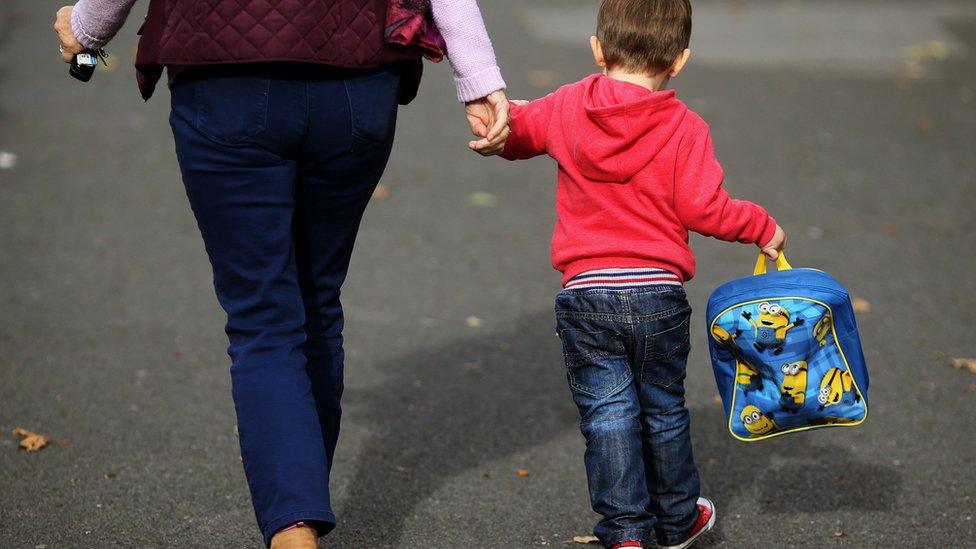Covid: Universal credit £20 top up to be phased out
- Published
- comments

The £20-a-week increase to universal credit will be "phased out" in the autumn, the government has confirmed.
Work and Pensions Secretary Therese Coffey told MPs the boost - introduced in April last year to help deal with the economic effects of Covid - would face an "adjustment".
Six former work and pensions secretaries have urged ministers not to end the uplift.
Ms Coffey said the change had been a "collective decision" by ministers.
The prime minister said the government is focusing on a "jobs-led" recovery from the pandemic, and to "get people into work".
Universal credit is claimed by more than 5.5 million households in the UK.
It was introduced to replace six benefits and merge them into one benefit payment for working-age people.
The top up was extended by six months in March and Labour has called for it to continue beyond the autumn.
Campaigners say the extra money - which is worth around £1,000 a year - has made the difference for some families between getting by and falling further into poverty.
Ms Coffey told the Commons Work and Pensions Committee that it would change this autumn alongside other measures put in place to help those affected by the pandemic.
"Ahead of October we will start communicating with the current claimants... to make them aware that will be being phased out and they will start to see an adjustment in their payments," she said.
Asked about universal credit at the Liaison Committee, Boris Johnson said there was a need for "a different emphasis" as the country emerged from Covid restraints.
"The emphasis has got to be about getting people into work," he said adding that job vacancies are back to pre-pandemic levels.
Earlier this week, six former Conservative work and pensions secretaries wrote to Chancellor Rishi Sunak, urging him not to end the uplift.
Sir Iain Duncan Smith, one of the signatories to the letter, said: "A failure to act would mean not grasping this opportunity to invest in a future with more work and less poverty and would damage living standards, health and opportunities for some of the families that need our support most as we emerge from the pandemic."


The uplift in universal credit has been a huge boost to some during the pandemic - adding more than £1,000 to budgets.
But it costs billions of pounds. And as the Treasury grapples with the cost of the pandemic, some believe the money should be cut.
There are, however, a number of prominent and influential Tories who want it to stay.
Not just former DWP minister, including Iain Duncan Smith, who brought in universal credit, but also many new Tory MPs, representing northern seats the party won from Labour in 2019.
This is going to be a big issue in the coming weeks - and the government is going to come under a lot of pressure - not just from opposition parties.

But Ms Coffey said that, just as its introduction last year had been decided collectively by ministers, so was the decision to wind it down.
The government's focus was on jobs and "all the things we can do to help people work more hours", she added.
Labour's shadow work and pensions secretary, said the plans would hit the lowest paid hardest and "hurt our economic recovery".
"There is near universal opposition to this cut, including from prominent Conservatives. It is time the government saw sense, backed struggling families and cancelled their cut to universal credit", he said.